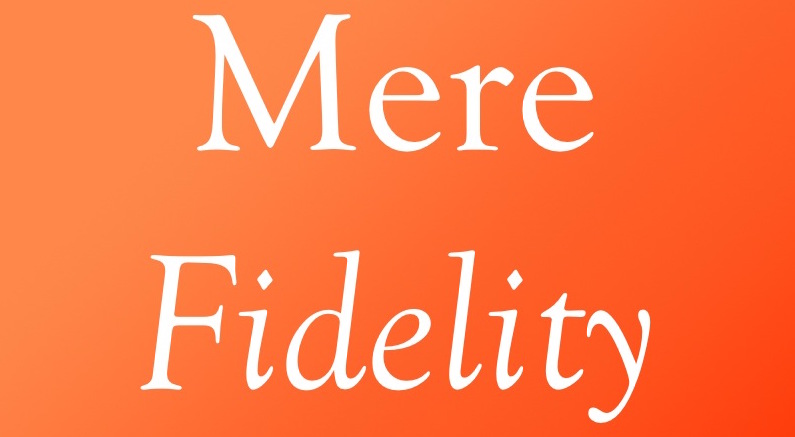Last week, I sought to offer an extended summary, with a few reflections of my own, on the barrage of posts and counter-posts prompted by David Bentley Hart’s “Is, Ought, and Nature’s Laws.” Although Hart’s essay had addressed the problem of natural law’s persuasiveness generally, the particular context for it was of course the debates over gay marriage, and when Peter Leithart reflected at First Things on the gay marriage problem specifically, it touched off what could be considered a second round of the natural law debate. I have reserved consideration of that second round to this installment, which Matt Anderson has graciously invited me to post here.
In Part I, I worked to distinguish the pragmatic and the principled arguments against natural law, which had been mixed together in some of the discussions. The first, while not disputing the formal validity of natural law arguments, worried that they simply would not gain any traction in our current culture, and so should be set aside. The second deduced from the present ineffectiveness of natural law that it was not formally valid in any time and place, and we must resort to specifically theological arguments. However, as I arrived at the conclusion of Part I, I pointed out that the pragmatic and the principled are not quite so easy to separate. For if, in point of fact, natural law is valid, but our culture cannot see it as such, that means our culture is willfully blind or irrational. And if we are to say that, are we not left with a condition of incommensurable beliefs and resulting culture war, part of the problem that the turn to natural law among contemporary evangelicals was meant to address? Instead of telling our opponents, “You couldn’t possibly understand because you don’t know God,” we’re reduced to telling them, “You couldn’t possibly understand because you’re irrational,” which is, if anything, even more insulting. In either case, we’re left with no real means of rationally persuading the opposition, and with quite considerable challenges to living together peacefully in a pluralist society. I promised at the end of that post to work to “explore and perhaps even address these questions” in this second installment. Whether I get beyond “exploring” at all remains doubtful, but let’s begin by briefly considering Leithart’s First Things post that kicked all this off.
Leithart’s starting point was not the failure of natural law arguments against gay marriage, but of biblical arguments, as observed in a recent debate on the subject between Doug Wilson and Andrew Sullivan. Wilson’s arguments, said Leithart, were predominantly pragmatic, attempting to demonstrate the negative consequences of gay marriage, or else Biblical. Sullivan considered the former unconvincing, the latter frankly irrelevant. To be sure, Wilson sought to emphasize not the negative prohibitions of Scripture on the subject of homosexuality, but its positive vision of the genders and marriage, and the rich Biblical typology surrounding these themes. Nonetheless, “in order for that to carry any weight,” observed Leithart, “people have to be convinced that social institutions should participate in and reflect some sort of cosmic order. Who believes that these days? Wilson tells a cute story, many will say, but what does it have to do with public policy?”
To anyone familiar with the recent discussions, it might appear that Leithart is headed at this point toward an endorsement of more robust, natural-law arguments on the subject, but instead, he throws up his hands in resignation: “Perhaps Christians are called to do no more than speak the truth without worrying about persuasiveness. Perhaps we have entered a phase in which God has closed ears, so that whatever we say sounds like so much gibberish.” Our only hope, he concludes, lies in “a renaissance of Christian imagination. Because the only arguments we have are theological ones, and only people whose imaginations are formed by Scripture will find them cogent.”
Writing at The Calvinist International, Alastair Roberts expressed incredulity over this “loss of nerve”:
Login to read more
Sign in or create a free account to access Subscriber-only content.
